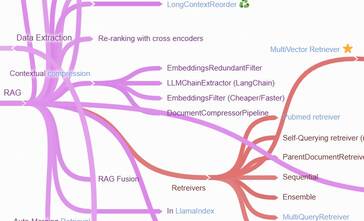LangChain is a free and accessible coordination framework for building applications that rely on large language models (LLMs). Although it is widely used, it sometimes receives critiques such as being complex, insecure, unscalable, and hard to maintain. As a novel framework, some of these critiques might be valid, but they might also be a strategy by the dominant LLM actors to regain power from the rebels.
The well-known machine learning frameworks PyTorch and Tensorflow are from the major players who also own some of the largest and most powerful LLMs in the market. By offering these frameworks for free, they can attract more developers and researchers to use their LLMs and platforms and gain more data and insights from them. They can also shape the standards and norms of the LLM ecosystem and influence the direction of future research and innovation.
It may not be the case that the major actors are actively trying to discredit LangChain, but some trends are worth noting. A common misconception is that LLM’s shortcomings are due to LangChain. You would often hear about LangChain hallucinating! Another frequent strategy is to confuse the discussion by bringing conflicting terms to the more widely used LangChain vocabulary. SDKs from major actors (deliberately) attempt to substitute their own syntaxes for LangChain’s.
You might be bewildered after a conference run by the main players, and that could be part of their plan to make you dependent on their products. My approach is to use a mind map to keep track of the LLM landscape and refer to that when suggesting LLM solutions. It also helps to have a list of open-source implementations of common patterns.

I have also noticed that the big players are gradually giving up and embarrassing the LangChain paradigms. I feel that despite LangChain’s limitations, it is here to stay! What do you think?
- Bringing Generative AI Into the EHR: Why DHTI Matter (Part I) - January 7, 2026
- Pragmatic Research That Builds and Travels - December 9, 2025
- Are we trapped in a matrix? - November 18, 2025
Pingback: Come, join us to make generative AI in healthcare more accessible! - Bell Eapen MD, PhD.